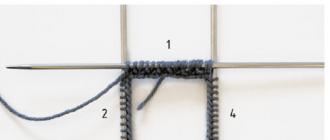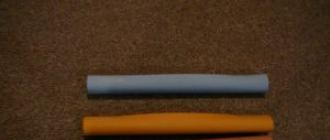Japan is an amazing country with great history and rich culture. For more than 200 years, since 1639, it remained
13 incredible facts about Japan
15:45 January 26, 2017Japan is an amazing country with a great history and rich culture. For more than 200 years, since 1639, it remained completely isolated from the outside world. The originality of the Land of the Rising Sun still surprises and fascinates us. I present to your attention 13 interesting facts about Japan that are hard to believe.
1. Capsule hotels
One of the options for Japanese hotels, which consists of small sleeping cells located one above the other. The capsule space is enough to sleep, watch TV or read a book. A night in such a hotel costs approximately $30.
2. Christmas dinner at KFC

Celebrating Christmas with dinner at KFC is a tradition that is becoming increasingly popular in Japan. Entire lines line up for a festive bucket of hot wings, salad and cake.
3. Some Japanese women deliberately crook their teeth

In Japan there is a trend called “Yaeba”, which means “double tooth”. Japanese women pay hundreds of dollars to dentists to change their completely straight and even teeth. They all want elongated and protruding fangs.
4. In Japan, the number 4 is considered unlucky.

Hotels and hospitals in Japan rarely have 4th floors. The number four is avoided by absolutely everyone, as it is consonant with the word “death.”
5. It’s impossible to be on the island of Miyakejima without a gas mask

Volcano Oyama, located in the center of the island, spews poisonous gas (sulfur dioxide), so residents simply cannot do without a gas mask.
6. Sleeping at work

Sleeping at the Inemuri workplace is a sign of seriousness about work, which is why Japanese companies encourage tired employees to take a nap for half an hour.
7. This year, 32,000 Japanese people turned 100 years old.

There are currently more than 65,000 people living in Japan who are over 100 years old. On the day of honoring old age, September 19, the government gives each new centenarian a silver dish.
8. The Japanese refuse sex

The Japanese (45% of women and 25% of men) no longer want to date, get married, or even just have sex, because everyone is obsessed only with their career.
9. Police catch criminals using paintballs

The trace of paint left after a shot on the clothing or vehicle of a criminal helps to quickly apprehend the attacker.
10. Ban on dancing in clubs after midnight

The law banning dancing after midnight was passed back in 1948 to prevent the spread of prostitution.
11. Japan is the birthplace of the oldest business in the world

The oldest business in the world is the Japanese hotel Nisiyama Onsen Keiunkan, which has been operating since 705.
12. Students clean their own classrooms

In Japan, students clean classrooms.
13. More than 70% of the entire territory of Japan is mountains

The country has many active volcanoes, as it is located on the Pacific Volcanic Ring of Fire.
Japan has a unique culture where everything revolves around strict rules of etiquette and mutual respect. Japan can also be called a meme generator country, because many popular habits of modern Western society came from there.If you want to eat noodles, follow the rules, they give you a gift, follow the rules for accepting the gift, if you come to visit, follow a million more rules so as not to offend the owner.
This complex interweaving of social norms and traditions may seem strange to those who are new to Japan, so if you are going there, be sure to read following rules.
1. Avoid the number "four" at all costs.
In Japan, the number four is avoided by absolutely everyone because it sounds like “death.” In the same vein as the number 13 in Western culture, the number 4 in Japan is extremely lucky because it constantly rests. It’s not even customary for four people to gather together.
Japanese buildings do not have a fourth floor, but skyscrapers have all the floors from 40 to 49 added to them. The number 49 is especially unlucky, since it sounds like “death pain”.
This is called "tetraphobia", and almost everyone in East and Southeast Asia suffers from this phobia.
2. Blowing your nose in public is strictly prohibited. This is considered a gross violation of the rules of etiquette.
Blowing your nose in public is really unpleasant for others. Instead, the Japanese tend to sniff around until they find a secluded spot. The Japanese also do not tolerate handkerchiefs.
3. Tipping is considered an insult.
Tipping is considered a gross violation of the rules of conduct and is even viewed as humiliation in Japanese society. Europeans and Americans who leave tips are often surprised when waiters run after them to return the money.
If you liked the service, do not leave money, but give a gift.
4. Don't eat while walking.

Although many of you eat on the go, in Japan this is considered a violation of etiquette. Many also consider eating in a public place or in transport a gross violation.
There are of course exceptions. You can safely eat ice cream.
5. Specially trained people will push you into the subway car.

The “pushers” wear special uniforms, white gloves and hats, but they don’t offer their hands; they literally push people into crowded subway cars during rush hour.
6. People can sleep in transport with their head on your shoulder.
If someone nearby falls asleep and their head rests on your shoulder, this is normal. The Japanese work a lot and have a long commute from home to work and back, so they all sleep constantly. You should just accept it.
7. There are special toilet slippers for bathrooms.

It is quite normal to wear slippers when entering a Japanese home, traditional restaurant, or temple. If there are slippers at the entrance to any room, you are required to change your shoes.
But to visit the toilet, the Japanese use special toilet slippers, which are kept in the bathroom or placed in front of the door. You are required to wear them when visiting this premises.
8. You should always bring a gift to the recipient.
In Japan, it is an honor to be invited into someone's home, and if this happens, you are required to bring a gift. The gift should also have very elaborate packaging with lots of ribbons and bows. And do not forget that the owner may refuse to accept your gift several times, but you must insist and he will accept it 5-6 times.
9. When visiting, you cannot pour drinks into your own glass.
You must pour a glass for the hosts, and they for you, and before drinking you must say “Kanpai.”
10. You are required to slurp and smack your food.

By slurping and smacking your lips, you express pleasure in eating food, which is praise for the hostess. On the other hand, Japanese soup and noodles are typically served hot enough to burn your tongue, and slurping helps cool the food.
But don't even think about burping...
11. Japan is the only country where capsule hotels pay off and are quite popular.
Here are the stories of some numbers with which many inhabitants of our planet do not associate anything good. It is traditionally believed that:
1 place. Number 666
Three sixes are also known as the number of the devil and the number of the beast. When meeting him, the number can kill. Scientists have long been trying to solve the mystery of the number. If you look at the Satanic sign, then in the middle you will see 666. Once upon a time they even predicted the end of the world on 06/06/2006. Meeting him could result in a grave.
2nd place. Number 23
A fatal number that scares people. There are many similarities with this number. The number 23 is a number that causes pain. A match with him could end in a hospital. There is even a movie called the number 23.
3rd place. Number 13
The number 13 is also known as the number of failures. Those who encounter it become losers. But fortunately, the curse of numbers can stop on its own. Friday the 13th is also known as “bad luck day”.
But in Japan:
Number 4 and number 9
The Japanese believe that the unluckiest number is "4". They avoid using it at all costs. Hospitals and houses do not have a fourth floor (the third is followed by the fifth).
The Japanese developed speech earlier than writing. According to the generally accepted version, Chinese and Japanese characters are closely related. For the first time, Chinese characters came to Japan thanks to monks who transported texts in Chinese. Because of this, the Japanese reading of some words is divided into three readings: onny reading (on'yomi), kun reading (kun'yomi) and gikun. From the readers' point of view, this means that kanji has multiple readings and multiple meanings. But gikun is a combined variant and is often found in Japanese surnames. Example. The character 道 in Chinese sounded something like [dao]. In Japanese speech it acquired the sound [do]. Thus, [do] is the onic reading of the character 道 in Japanese. The Japanese began to use this kanji (borrowed Chinese character) to represent the word path. Initially, even before the advent of writing in Japan, they already had the word path in their oral speech, it is read as [miti], i.e. [michi] is the kun reading of the character 道 in Japanese. Or the combination 一寸 can be read as issun (that is, “one sun”), but in fact it is an indivisible combination of tetto (“a little”).
Let's get back to reading the numbers in Japan.
Onny (Japaneseized Chinese) reading of the number “4”, [si], lat. , is reminiscent of the character 死 ("death"), which has the same reading. Another unlucky number for the Japanese is 9. . And all again because of bad consonance. The number “9” (九) is considered unlucky by the Japanese due to its consonance with the hieroglyph “torment” (“pain”). The Japanese call such consonance nothing other than “goroawase”.
Examples of "unlucky" two-digit numbers in Japan:
24
— ni si (二死): “double death”;
33
— sanzan (散々): “unfortunate”; “cruel, terrible”;
42
— si ni (死に): “towards death”;
49
— siku (死苦): "death pains".
Number 39
Afghans avoid the number 39 on car license plates, mobile and home phone numbers, and even on building addresses. People who have it on their house number pay calligraphers to draw a nine that looks as much like an eight as possible. If a resident of Kabul has the number 39 in his phone number, he must take care to put an anti-caller ID, otherwise no one will answer his calls. Finally, people who have turned 39 try not to mention it. When asked about their age, they answer that they are almost 40.
Number 0888 888 888
In Bulgaria, the telephone number 0888888888 is not serviced by the mobile phone company Mobitel due to superstitions. The fact is that its three ex-owners died one after another. The first to go to the next world was Vladimir Grashnov, the former head of Mobitel. According to the official version, the cause of Grashnov’s death was cancer. But there were rumors in Bulgaria that he was poisoned by competitors. The number was then handed over to drug lord Konstantin Dimitrov. Dimitrov died in Holland, where he went to inspect his possessions. The murder was blamed on rival Russian mafia clans. The third owner of the unlucky number was also drug dealer Konstantin Dishliev. A man, officially engaged in real estate activities, died near a popular restaurant in Sofia. A few days earlier, police found drugs worth a total of 130 million euros at his home. After this, Mobitel stopped servicing the “damned” number.
Number 11
The twin towers of the World Trade Center stood close together and resembled a huge number 11. Planes flown by terrorists crashed into them on September 11 (ninth month of the year). Having summed up two ones and a nine, we get, again, 11. But that’s not all. September 11 is the 254th day of the year, and the numbers 2, 5 and 4 when added together form 11. The first plane to crash into the towers was flight number 11. It carried 11 crew members, as well as 92 passengers (9+ 2=11). Finally, the English names of the city of New York and the country of Afghanistan, as you might guess, have exactly 11 letters each.
Number 17
Italians consider the number 17 unlucky. In their opinion, it symbolizes death, because it is written in Roman numerals, like XVII. "What's wrong with that?" - you ask. The fact is that such a sequence can easily be converted into the word “VIXI,” meaning “I lived.” This is what was often engraved on the graves of the ancient Romans. In addition, the number 17 is considered unlucky because February 17 is the day the global flood began (this is one of the rare events precisely dated in the Bible). Let us also mention that in one of the numerical systems used to interpret dreams, 17 means failure.
Number 250
For the Chinese, the number 250 is offensive. The fact is that in their language it is pronounced “er bai wu”, which translates as “feeble-minded”. The ancient inhabitants of the Celestial Empire probably began using these numbers as an insult. Interestingly, when copper coins were still common in the country, the amount of 1000 coins was considered an established measure of value. If the product cost 2 times less (500 coins), it was clear that it was inferior in quality. The price of 250 coins was set for goods of the lowest quality.
Number 87
The seemingly innocuous number 87 is called the "devil number of cricket" in Australian cricket. Fans of the sport believe that a server will likely be eliminated from the game soon after scoring 87 points. The roots of the superstition date back to 1929, when a 10-year-old boy, Keith Miller, watched a game with Donald Bradman, considered the "best bat" at the time. In that game, Donald scored just 87 points, after which he was taken out of the game. Fifteen years later, when Miller also became a professional cricketer, his partner Ian Johnson was also bowled out for exactly 87, allowing the superstition to take hold. The funniest thing about this story is that many years later Miller decided to once again study that same match in detail. To his surprise, he found out that Donald Bradman had scored 89 points, not 87.
Number 17
In 2014, over the course of seven days, starting from the 17th day of the seventh month (July), planes crashed in Ukraine, Mali and Taiwan. Malaysian flight MH17 was shot down at 17:17 in eastern Ukraine. It is noteworthy that the Boeing 777 aircraft was in operation for exactly 17 years (from July 17, 1997 to July 17, 2014). In the same month, an Indian military helicopter, flying over Taiwan, crashed at 17:07, killing 7 passengers in the accident. A little earlier, on July 7, 2014, a Mi-171 helicopter used by the Vietnamese military crashed at 7:37 am.
Number 26
26 is an unlucky number in India. The devastating earthquake in Gujarat, which killed 20 thousand people, dates back to January 26, 2001. On December 26, 2004, a powerful tsunami killed almost 230 thousand people. On May 26, 2007, powerful bombs exploded in northeastern India, in the city of Guwahati. On July 26, 2008, a bomb was detonated in Ahmedabad. Finally, exactly 5 months later, on November 26 of the same year, a series of bloody terrorist attacks followed in India. When adding the numbers 2 and 6, the result is 8. In numerology, eight symbolizes devastation, difficulties, and failures. Experts warn that it is better not to schedule weddings and other special ceremonies on the 8th of the month.
Number 191
Since the sixties of the last century, five different aircraft with flight number 191 have suffered accidents. In 1967, the X-15 plane, which was making its 191st experimental flight, crashed in America. Surprisingly, this plane crash was the only one in the history of the use of the X-15. Prin Flight 191 crashed at Mercedita Airport in Puerto Rico in April 1972. In 1985, tragedy struck the Delta Airlines Flight, which was also on its 191st flight. It crashed upon landing in Dallas. 137 people died then. In 1979, in the United States of America, a passenger airliner crashed just after taking off from Chicago O'Hare Airport. All 273 people on board were killed. His flight number was 191. Finally, in 2012, JetBlue Airways plane 191 had to make an emergency landing. One of the pilots suddenly began to behave inappropriately during the flight. Passengers struggled to hold on to him while the co-pilot landed the plane. Major airlines Delta Airlines Flight and American Airlines have recently stopped using flights with the unlucky number 191.
Japanese numbers At first, the studies raise many questions, since they have different pronunciations, Japanese proper, which is pronounced according to the kun reading of the hieroglyph, and Chinese, pronounced according to the on reading of the hieroglyph. Learning numbers is not difficult, the main thing is to remember in which case the kun or on reading is used.
Also, some numbers have two pronunciations - all that remains is to learn and remember in which combination this or that sound of the hieroglyph is pronounced.
Below are tables of abstract counting without application to days, years, number of items, etc. It's like we do when we just count to ten: one, two, three, four, five and so on. In this case, the Chinese pronunciation (on) is used.
Abstract counting numbers from zero to ten
| Number | Hieroglyph | Hiragana (on sound) | Pronunciation (romaji) | Meaning |
|---|---|---|---|---|
| 0 | 零 | ゼロ、れい | zero, rei | zero |
| 1 | 一 | いち | ichi | one |
| 2 | 二 | に | ni | two |
| 3 | 三 | さん | san | three |
| 4 | 四 | し、よん | shi、yon | four |
| 5 | 五 | ご | go | five |
| 6 | 六 | ろく | roku | six |
| 7 | 七 | しち、なな | shichi、nana | seven |
| 8 | 八 | はち | hachi | eight |
| 9 | 九 | く、きゅう | ku、kyu: | nine |
| 10 | 十 | じゅう | ju: | ten |
A children's video will help you, you will not only remember the pronunciation of numbers from 0 to 10, but also hear how the Japanese do it, since in some numbers (including in subsequent digits) the sound is reduced or lengthened. It's always useful to hear the pronunciation of a native speaker.
Numbers from 10 in Japanese
Japanese numbers after 10 are easy to remember; just learn the first ten. Each subsequent number is the result of adding 10 and the desired digit. So 11 is 10+1, in Japanese it looks like this: 十 And 一 / じゅう + いち / ju:ichi
| Number | Hieroglyph | Hiragana (on sound) | Pronunciation (romaji) | Meaning |
|---|---|---|---|---|
| 11 | 十一 | じゅういち | ju: ichi | eleven |
| 12 | 十二 | じゅうに | ju:ni | twelve |
| 13 | 十三 | じゅうさん | ju: san | thirteen |
| 14 | 十四 | じゅうし じゅうよん | ju:shi ju:yon | fourteen |
| 15 | 十五 | じゅうご | ju:go | fifteen |
| 16 | 十六 | じゅうろく | ju: roku | sixteen |
| 17 | 十七 | じゅうしち じゅうなな | ju: shichi ju: nana | seventeen |
| 18 | 十八 | じゅうはち | ju: hachi | eighteen |
| 19 | 十九 | じゅうきゅう じゅうく | ju: kyu: ju:ku | nineteen |
| 20 | 二十 | にじゅう | ni ju: | twenty |
Counting tens in Japanese
As you noticed above, tens in Japanese are obtained as follows: first we call the desired number and add 10 to it. Visually it looks like this - 2*10=20 / 二 And 十 / に and じ ゅう
| Number | Hieroglyph | Hiragana (on sound) | Pronunciation (romaji) | Meaning |
|---|---|---|---|---|
| 10 | 十 | じゅう | ju: | ten |
| 20 | 二十 | にじゅう | niju: | twenty |
| 30 | 三十 | さんじゅう | sanju: | thirty |
| 40 | 四十 | しじゅう よんじゅう | shiju: yonju: | fourty |
| 50 | 五十 | ごじゅう | goju: | fifty |
| 60 | 六十 | ろくじゅう | rokuju: | sixty |
| 70 | 七十 | しちじゅう ななじゅう | shichiju: nanaju: | seventy |
| 80 | 八十 | はちじゅう | hachiju: | eighty |
| 90 | 九十 | きゅうじゅう | kyu:ju: | ninety |
| 100 | 百 | ひゃく | hyaku | one hundred |
Remember:
- 九十 / きゅうじゅう / kyu: ju: /ninety
In this combination there is only one pronunciation; you cannot use the second meaning of the number 9 (ku)
What will the number 38 look like? Correct: 3*10+8, 三十八 / さんじゅうはち /sanju: hachi,
In this video you can get acquainted with Japanese numbers from smallest to very large. It may be difficult to understand everything the first time, but once you master Japanese counting, in my opinion, this video is very informative.
Numbers in Japanese from 100
We learned above that 100 in Japanese is read as 百 / ひゃく /hyaku. The hundreds place is formed by combining 百 with the number we need. So the number 500 is the product of 5 and 100, that is, we take the number 5 五 / ご /go and add 百 /ひゃく / hyaku = 五百 /ごひゃく / gohyaku.
At the same time, in the category of hundreds, as well as in the category of thousands, new rules for stunning, voicing and doubling sounds appear; this must be remembered!
If you need to say one hundred, then there is also a change in pronunciation 一百 / いっぴゃく / ippyaku
| Number | Hieroglyph | Hiragana (on sound) | Pronunciation (romaji) | Meaning |
|---|---|---|---|---|
| 100 | 百 | ひゃく | hyaku | one hundred |
| 200 | 二百 | にひゃく | nihyaku | two hundred |
| 300 | 三百 | さんびゃく | sanbyaku | three hundred |
| 400 | 四百 | よんひゃく | yonhyaku | four hundred |
| 500 | 五百 | ごひゃく | gohyaku | five hundred |
| 600 | 六百 | ろっぴゃく | roppyaku | six hundred |
| 700 | 七百 | ななひゃく | nanahyaku | seven hundred |
| 800 | 八百 | はっぴゃく | happyaku | eight hundred |
| 900 | 九百 | きゅうひゃく | kyu:hyaku | nine hundred |
| 1000 | 千 | せん | sen | thousand |
The number 777 in Japanese will look like this: 七百七十七 / ななひゃくななじゅうなな /nanahyaku nanaju: nana
Number 357 - 三百五十七 / さんびゃくごじゅうなな / sanbyaku goju: nana
Counting in Japanese - thousands
The principle of compiling numbers is the same as before, a thousand is added to the number, you just need to remember some features.
| Number | Hieroglyph | Hiragana (on sound) | Pronunciation (romaji) | Meaning |
|---|---|---|---|---|
| 1000 | 千 | せん | sen | thousand |
| 2000 | 二千 | にせん | nisen | two thousand |
| 3000 | 三千 | さんぜん | sandzen | three thousand |
| 4000 | 四千 | よんせん | yonsen | four thousand |
| 5000 | 五千 | ごせん | gosen | five thousand |
| 6000 | 六千 | ろくせん | rokusen | six thousand |
| 7000 | 七千 | ななせん | nanasen | seven thousand |
| 8000 | 八千 | はっせん | hassen | eight thousand |
| 9000 | 九百 | きゅうせん | kyu:sen | nine thousand |
| 10000 | 万 | まん | man | ten thousand |
The number 1094 in Japanese will look like this: 千九十四 / せんきゅうじゅうよん / sen kyu: ju: yon
Number 6890 - 六千八百九十 / ろくせんはっぴゃくきゅうじゅう / rokusenhappyakukyu:ju:
Agree that the Japanese language is not so difficult that you refuse to study it, but it is very interesting and melodic that you decide to take a step towards understanding it. You will begin to think differently, learning any foreign language broadens your horizons, and the Japanese language is special in this regard, familiarity with grammar will help you better understand the mentality of the Japanese, different styles of speech will tell you about the versatility of relationships in Japanese society. Certified teacher, simultaneous interpreter Anna Reva and the online Japanese language school “Ikigai” will help you take an interesting path in learning the Japanese language.
Account from 10,000
- Units
- Tens of thousands (まん / man)
- Hundreds of millions (おく/oku)
Each class has 4 digits - units, tens, hundreds, thousands.
If our number looks like 000 000, then in Japan it’s 0000 0000. 1 mana is 10 thousand
1 0000 - まん - ten thousand
10 0000 - じゅうまん - one hundred thousand
100 0000 - ひゃくまん - one million
1000 0000 - せんまん - ten million
1 0000 0000 - おく - one hundred million
10 0000 0000 - じゅうおく - billion
100 0000 0000 - ひゃくおく - ten billion
1000 0000 0000 - せんおく - one hundred billion
1 0000 0000 0000 - ちょう - trillion
So the number 1 1111 is 一 万一千百十一 / いちまんいっせんひゃくじゅういち / ichimanissenhyaku ju:ichi
Japanese numerals
Next, let's look at the list of Japanese numerals. There are only ten of them and they are preserved from the old Japanese language. Previously, one in Japanese sounded like “hi”, two - “fu”, three - “mi” and so on. Japanese numerals are used in certain cases, such as:
- when you need to say the number of the month from one to ten. For example, April 2 will be 4月二日 / しがつ ふつか /shi gatsu futsuka
- when you need to say the number of days (from 1 to 10) expressing a period of time. For example: 3 days - 三日 / みっか /mikka
- when indicating the number of small items (cake, bag, chair, etc.)
- when ordering
- when indicating age (if a counting suffix indicating age さい is not used), etc.
You can use a hint such that if the word is used in a question sentence いくつ / ikutsu / how many?, then the answer must use numerals of Japanese origin. If the question consists of the Chinese (on) version of the reading 何 / なん、なに / nan, nani / question word - what?, how many, then the numbers given in the tables above are used.
Table of Japanese numerals from one to ten
| Number | Hieroglyph | Hiragana (on sound) | Pronunciation (romaji) | Meaning |
|---|---|---|---|---|
| 1 | 一つ | ひとつ | hitotsu | one |
| 2 | 二つ | ふたつ | futatsu | two |
| 3 | 三つ | みっつ | mitsu | three |
| 4 | 四つ | よっつ | yottsu | four |
| 5 | 五つ | いつつ | itsutsu | five |
| 6 | 六つ | むっつ | muttsu | six |
| 7 | 七つ | ななつ | nanatsu | seven |
| 8 | 八つ | やっつ | yattsu | eight |
| 9 | 九つ | ここのつ | kokonotsu | nine |
| 10 | 十 | とお | tō | ten |
And for clarity, in one table I will place Japanese numbers from 0 to 10 in on and kun reading.
The Chinese people have always been famous for their superstition and serious relationship to legends and generally accepted traditions. This is especially true for the magic of numbers, which has been respected and even slightly feared since ancient times, because it can control people’s lives. The number 4 in China is considered the most terrible. Thanks to this attitude of the Chinese, even a special term “teraphobia” arose - fear of the number 4.
What is the reason for such fear? It's simple. The point is that the number 4 in China sounds approximately the same as the word “death”. Four is 四 Sì, death is 死亡 Sǐwáng.
Even different spellings and tone of pronunciation could not save the number from such a sad fate.
To make it more clear, for the Chinese, four means the same thing as the number 13 for us. This is a devilish number that brings continuous troubles and misfortunes. By the way, in China they do not believe in the bad meaning of the number 13, however, as a sign of solidarity with European tourists, the Chinese also try not to use this number often.
The panic and fear that the presence of the number 4 in China spreads among the local population led to the fact that the Government of the country had to resort to removing this number from general circulation. Arriving in China and checking into a hotel, you will not be able to find either a floor or a room marked with the number four. Most often, staff use the replacement letter F, or simply sign the floor or number that comes fourth in order as the fifth. Signature 3 “a” is also used.
Of course, not everyone does this, there are elevators with the number 4, and floors and house numbers, but the most superstitious still try to remember the meaning of the number 4. Just recently, in one of the hotels in China, I had to walk a very long corridor three times, looking for my number with the number "2034". It simply wasn’t there; 2036 was immediately after 2032 (even side).
Many people know the story that the existing hospital number 4 almost ceased operations because patients refused to undergo treatment there, explaining their position by saying that by agreeing to cross the threshold of the hospital with a “dangerous” number, they were knowingly dooming themselves to death . In this regard, the hospital had to be urgently renamed.
The unfortunate number 4 in China ultimately led to the country banning the issuance of license plates containing this magic number. The fact is that almost all motorists who were “lucky enough” to receive a registration number with a four refused to receive it, scared that they might best case scenario get into an accident with such a vehicle or even die. Even despite all the paperwork, revision of paperwork, confusion in registration services and huge queues there, the number 4 has become prohibited in China.
By the way, the fate of the “unfortunate” and “avoided” number overtook not only the four, but also all the other complex numbers that contain it. For example, 14, 24, 54, 742, etc.
Be that as it may, no matter how many people don’t want to believe in Chinese ancient superstitions, you can’t fool the statistics. And she says that most often deaths in China occur on the fourth. Such data is provided by American sociologists after analyzing data on the mortality of Chinese living in the United States. Is this superstition or fiction? The question remains open, but statistics is an exact science, so it is very possible to understand the Chinese, who treat the number 4 with fear.
Although, even despite such sad data, many modern Chinese remain cold-blooded towards the magical four. Even taking into account the fact that Chinese numerology is based on Taoism, a time-tested tradition.
I will also add that the number 4 in China can also have a positive meaning. For example, the literal translation of the number 48 sounds like “deadly money”, but it means “immense wealth”, which is earned by honest hard work.
Whether you believe in this superstition or not is up to you personally; I will add on my own that this phenomenon cannot be explained in any way by science.
If you want to know more about the traditions and culture of China, life and superstitions, and at the same time study Chinese (or even get higher education), we invite you to familiarize yourself with the possibilities of obtaining long-term language courses, bachelor's and master's degrees.






